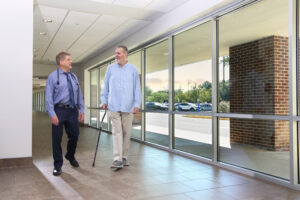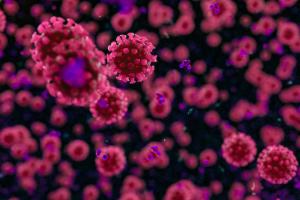Physicians, nurses, and other team members on the front lines of the COVID-19 crisis experienced a wide range of emotions during the experience, which seemed surreal for many – especially for caregivers who themselves became infected with the virus.
With an early cluster of cases at CentraState, physician leaders quickly realized that an innovative approach to delivering care was needed. COVID-19 clinician teams were created to effectively coordinate care while minimizing exposure to the virus. Board-certified pulmonologist/critical care physician John DeTullio, MD, was a member of this response team, regularly assessing and treating patients with COVID-19.
Then on April 14, he began to feel a little off, with symptoms like body aches, nasal congestion, and itchy eyes. He took a day off, but soon had a 100.2 fever and headed to the CentraState Emergency Department for a chest X-ray and nasal swab. Test results came back positive for COVID-19.
“In treating patients for the prior six weeks, I knew how this disease behaved – and I knew it could significantly worsen between days 7 to 12,” he recalls. “At my age with occasional asthma, it was frightening knowing and waiting for what could happen.”
During a 14-day quarantine in his bedroom, Dr. Detullio developed a slight cough and lost his sense of smell and taste. By day 7 or 8, his fever rose to 101 and he experienced shortness of breath. His wife, who was quarantining in another part of their home, left three meals a day at his bedroom door.
“For a few days I was pretty concerned, but connecting with people via phone, text, and email helped,” he says. “I also tried to stay out of bed except for naps and during the night.”
Determined to fight the virus, Dr. DeTullio walked 3,000 to 5,000 steps a day in his own bedroom whenever possible. He also periodically rested while lying in a prone (face down) position, as studies show this may improve blood oxygen levels in certain patients with COVID-19.
After the 14-day quarantine period, several negative tests, and an additional week of rest to regain his strength, Dr. DeTullio returned to patient care with a personal perspective on the disease.
“I was lucky to have had a mild case and support to help me through it,” he adds. “This pandemic has been an ever-changing learning experience, but we’ve collectively shared insights and expertise to provide the best care possible for our patients and the community – and we’re ready for whatever comes next.”





